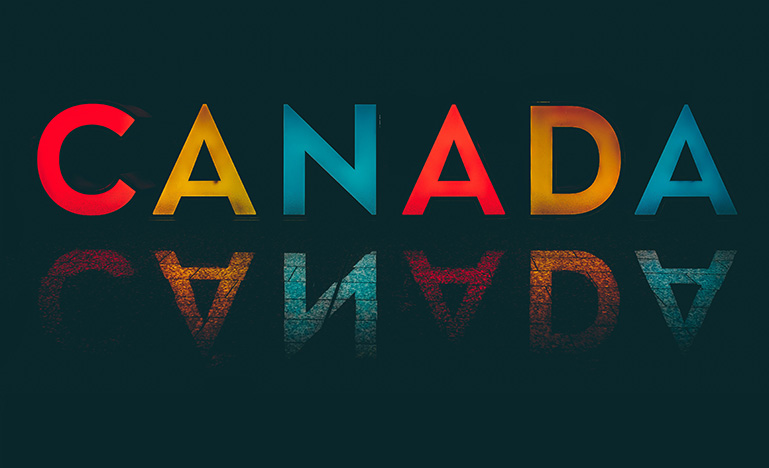Immigrating to Canada as a Lawyer
The path to practice for foreign-trained professionals

As a foreign-trained lawyer, I found the journey to re-enter the legal profession in Canada overwhelming. However, even with its challenges, I am so pleased that I took the risk and put in the hard work because the rewards have made it all worthwhile. I can now call myself a dual-certified lawyer, and I have the opportunity to connect with and help so many diverse individuals in my new home.
Given the enormity of the idea of requalification in a foreign country, I wanted to share my experience of the process to help other foreign-trained lawyers who are looking to move to Canada.
The journey to re-enter the legal profession in Canada involves navigating complex accreditation procedures, overcoming various barriers, and ultimately contributing to the Canadian legal system with a diverse range of skills and experiences.
In Canada, the process is managed by the National Committee on Accreditation (NCA), a division of the Federation of Law Societies of Canada. Foreign-trained lawyers must undergo a series of exams, which may include multiple subjects depending on the education and professional background of the foreign-trainee. In addition, the NCA evaluates foreign degrees to determine their equivalency to Canadian law degrees. This often requires the completion of qualifying exams or further attendance at a Canadian law school.
Once the NCA process is complete, foreign-trained lawyers must secure articles (or a clerkship) within their province and go through the required procedures to be called to the Bar in that province. In British Columbia, foreign-trained lawyers seeking to be called to the B.C. Bar are required to complete the Professional Legal Training Course (PLTC) offered by the Law Society of British Columbia (LSBC), which includes passing two mandatory examinations (the Solicitor Exam and the Barrister Exam). As some applicants may be exempt from parts of the PLTC program, it is best to contact the LSBC for more information in this regard.
One of the most common challenges faced by foreign-trained lawyers is the financial strain of the requalification process. Costs associated with requalification can include $3,000 plus tax for the NCA process or $35,450 for a year’s enrolment at a Canadian law school. Coupled with the added loss of income while unable to practise law, these costs can be significant.
The process can take several years, and delays in earning potential are often felt immediately. For many foreign-trained lawyers, the salary at the beginning of their careers in Canada may not reflect the years of experience gained abroad. In fact, many firms base salaries on a lawyer’s year of call, which means that seasoned foreign-trained lawyers may earn the same salary as Canadian lawyers who have only recently graduated from law school. This discrepancy is disheartening, particularly for professionals with decades of experience.
Moreover, language barriers present another hurdle, especially for lawyers from non-English-speaking countries. The legal profession in Canada requires not only proficiency in the language of law but also a deep understanding of Canadian legal traditions, statutes and case law. This requires foreign-trained lawyers to invest significant time and effort into language courses, exam preparation, and study materials tailored to the Canadian legal landscape.
These challenges are not unique to the legal profession. Other regulated professions, such as healthcare, also face lengthy and costly accreditation processes. These hurdles can result in significant delays to entering the workforce and hinder earning potential. However, some progress is being made in accelerating the accreditation process for certain professions. In British Columbia, for example, legislation has been introduced to speed up accreditation for healthcare professionals, such as nurses, who have trained abroad. It is hoped that the legal sector will follow suit and introduce similar policies to expedite the entry of foreign-trained lawyers into the workforce.
In addition to the tangible hurdles of accreditation, foreign-trained lawyers may also experience a sense of isolation, particularly in a new country. Without a local network, finding the necessary support and mentorship can be difficult. This lack of community exacerbates the emotional challenges of the accreditation process, making it essential for foreign-trained lawyers to seek connections and advice wherever possible.
Given the increasing number of immigrants entering Canada, the value of foreign-trained professionals cannot be overstated. These professionals bring a wealth of experience, diverse perspectives, and a global understanding of legal systems that can only enrich Canadian legal practice.
As the profession becomes more inclusive, it is essential that there are more structured opportunities for foreign-trained lawyers to connect and support each other. One such network is the recently formed Internationally Trained Lawyers Section of the Canadian Bar Association, of which I am proud to be a Section Executive.
The purpose of this Section is to connect and support lawyers who are in the process of completing or have completed the National Committee on Accreditation Certificate of Qualification to practise law in Canada. The Section offers a forum for learning, connection and support to secure employment, adapt to the British Columbia legal landscape, and focus on skills and knowledge development relevant to this group.
In conclusion, the process I went through to become a lawyer in Canada was rigorous, but with determination, it was possible to overcome the barriers. The legal profession in Canada is gradually evolving, with increasing recognition of the value that foreign-trained lawyers can offer. As the legal system continues to adapt, these professionals will play an increasingly important role in shaping the future of Canadian law.




